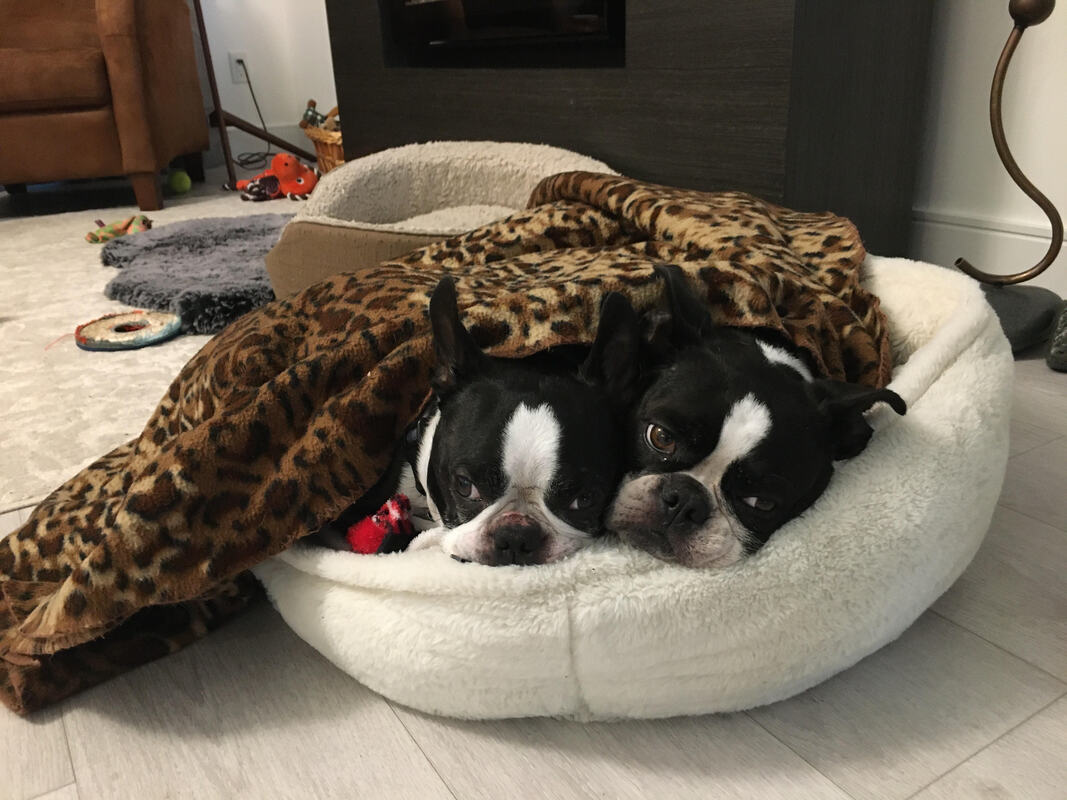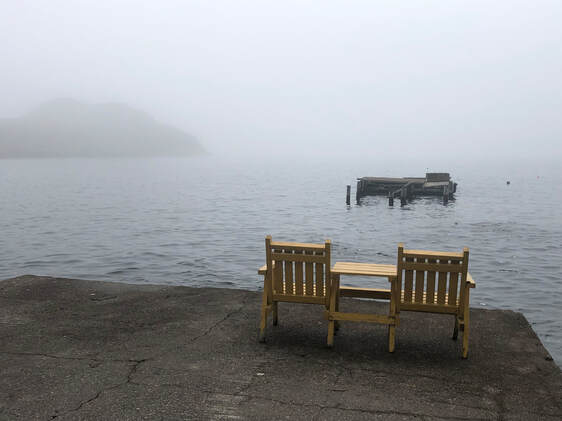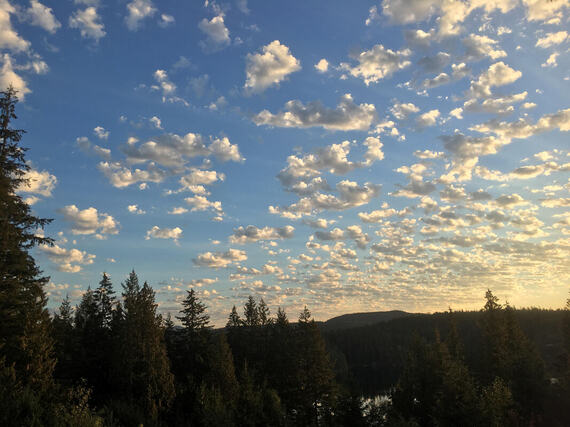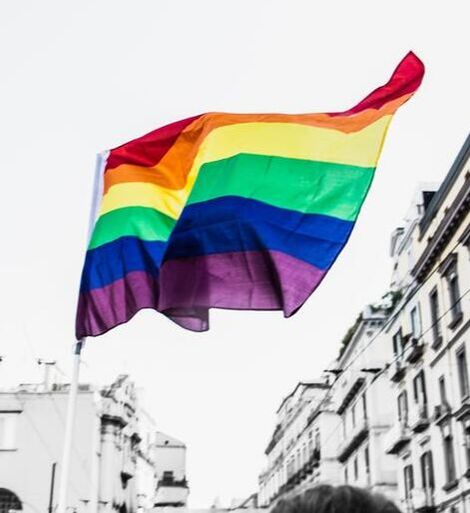|
Well, it's been eight years, but still. I'm moving my blogging over to Substack. Come find me there, please!
Wondering Allowed | Substack
0 Comments
Happy Old Year Today is the last day of 2023. It is 10:30 a.m. and I have just arrived at my desk to start my office hours which begin at 9:00 a.m. sharp. In my defense, there is an awesome jigsaw puzzle under construction on the dining room table which I only work on outside of office hours. Theoretically. (As I am self-employed, I can say with 100% certainty that my boss is really fed up with my behaviour this week.) Anyhow . . . sitting at the puzzle table by myself this morning allowed my brain to roam freely, which is a good thing – perhaps a necessary thing – for creativity. And, it being December 31, my mind eventually began to wonder about the ways in which we say good-bye to outgoing years. Now, where I live, many people have a rather loose relationship with the Gregorian calendar. A fair number of people in my community might fail to notice this is New Year’s Eve at all. On my island, tonight is less Happy New Year, and more Thank the goddess we’re past the Solstice and have you got your seed catalogue yet? And of course, there are more than 25 different dates to celebrate the start of a new year, depending on your culture. But most people will be marking this day in some way. Many people don’t say good-bye to the old year at all. They just skip right to the welcoming of the new year. And there are as many ways to do that as there are people in this world. But in the past few years, I have heard more about saying good-bye to the old year. I suppose that has to do with having just gone through a global pandemic. There were a lot of slamming doors and shouts of good riddance the last few December thirty-firsts. But as I worked on the puzzle, ignoring the nagging of my boss, I wondered how people will be saying good-bye to 2023. It was a weird year in many ways. Still feeling the relief of the end of the pandemic, yet now facing the aftershocks to the world economy, not to mention the quickly-accelerating effects of climate change. More war, more suffering, more displacement, more of a long list of terrible things that hang over our heads like storm clouds, absorbing every last ray of light. I wish I was the sort of person who could ignore the clouds and hold the light of hope in my heart. But it’s hard. As I said to a friend last night, The FACTS of my life are all good, but at the moment, my emotions don’t match the facts. But facts are facts and emotions ebb and flow. So, with my eyes firmly set on the good fortune of my life, I wonder about my own rituals for saying good-bye to 2023. I’ve done some reading about how people mark the end of the year and I’ve decided that they fall – very loosely – into three basic categories. In the first group, are people who treat the end of the year like a memorial service. Perhaps they are truly mourning the end of a great year – a beloved friend gone too soon. Or, maybe they just planned a very artsy funeral for someone they actually didn’t like all that much. Second group is comprised of those who, if pressed into written expression, would be writing a nasty break-up letter. I mean, nasty. With mild to moderate name-calling. And third, are those who are wrapping up loose ends and shaking hands with 2023. Like ending a business contract. I think I’m in this group. And actually, the contract went well. We experienced more gains than losses, more successes than failures, and overall, it was a very good year. Thanks, 2023. It’s been a pleasure working with you. Now, if you will excuse me, I have a puzzle to finish. Image from Unsplash (deepblue4you)
I’m on another dog sit; happily cohabitating with a couple of Boston terriers for a few days to immerse myself in the writing world. However, I have been distracted by a small moral dilemma. Today, I am wondering if it is always the right thing to do to tell the truth. In this case, do I tell these two new friends the truth:
They’re dogs. Now, in the dog world, everyone knows that Bosties are in their own category. They march to a different drummer – an enthusiastic, energetic drummer, with no discernable sense of rhythm. But these two Bosties are another thing entirely. There is no way that these two little puddings are aware that they are dogs. In case you’re skeptical, allow me to present my evidence for suspecting that my new roommates are delusional. First, there’s the farting. I have occasionally met dogs who look slightly chagrined by their own farts. Sometimes, puppies can be quite shocked to find they’ve sprung a leak. But never have I heard these dainty little squeaks that were clearly suppressed as much as possible, followed by a look of absolute mortification. I’m telling you, June (not her real name) looks like the organist at church who tried to fart during the loud part of the music and mistimed it tragically. Second, the blankets. I will allow that some dogs – often terriers – like to be snuggled under the blankets at night. But during the day? All day? And I’m pretty sure June switched beds once to get the blanket that matches her collar. Third is the disdain for the great outdoors. And no, it isn’t cold. Or raining. Or windy. It’s really nice. I know because I just returned from a lovely walk through beautiful trails. Without any dogs! When I left on the walk, I tried to talk them into it even though their Mama said not to worry about walking them. It was so counter intuitive to leave the dogs to go for a walk, that I could barely do it. I decelerated unconsciously as I headed to the door, to the point that I was almost in slow motion by the time I reached the exit, using every doggy-approved version of the word WALK that I could think of. Nothing worked. Not even Walkies in my Ethel Murman voice. I have to drag these two outside for a pee. Watching Roland (not his real name, but probably should be) tiptoe around the patio for a suitable spot to step off the concrete onto the – egads! – wet grass is a painful display of daintiness more befitting a middle-aged museum curator than a dog. Once the unpleasantness has been taken care of, he rushes back to his little bed with the fleecy blankets. (Hold on a minute while I soak their kibble in hot water so it’s easier to chew.) Where was I? Ah yes, the moral dilemma. Should I sit them down and tell them that they are – and I’m whispering now – dogs? I’m pretty sure they would just look back at me with the look of incredulity that I have received with each suggestion of walk. Or play. Or fetch. Or anything that could be classified as a ‘dog thing’. Perhaps I should test my theory first and suggest a museum visit to Roland? Perhaps an organ recital for Miss June? If that gets a different response, I’ll know. But that still won’t solve my dilemma. Tell them they’re dogs, or continue to play along? Sometimes dog-sitting is a lot more complicated than you’d think. How ya getting on and whadda ya at? Back just from Newfoundland, b’y, and t’was lovely grand. In three weeks, buddy can’t knows it all, but people is best kind and tells ya’ what yer at if you come from away. You got naught when buddy asks who knit ya, but so long as you’re after trying yer best and none says, “ye got me drove”, well, dats proper ting. Youse stays away from the hard ticket and lard tunderin’ you’ll have a time. But shag it if skipper wants to ‘ave a yarn, me duckie – no b’y. And hardly a mausey day, but now da once and what odds, anyhow? Altogether, some shockin’ good, b’y! Ah, Newfoundland, I’ll drop over ‘round by and by.
Translation: How are you and what are you up to today? I have just returned from Newfoundland and it was wonderful. In three weeks, one can’t learn everything, but the people are great; very helpful and friendly with visitors. You won’t be able to engage in the common Newfoundlander conversations about family and hometown connections, but as long as you try to contribute and don’t behave in an annoying way, that’s okay. Avoid troublemakers and you will have a good time. But if an elder wishes to engage you in conversation, don’t even try! You won’t understand. The weather was excellent and it was altogether an outstanding trip. I will definitely go back and visit again. I’ve just returned home from two weeks on the road. Specifically, the roads of Washington, Oregon, and northern California.
It was beautiful. And a little bit awful. Like life; a constant swing back and forth between joy and sadness. Beautiful art galleries. Boarded up storefronts. Epic redwood trees. Clearcuts. Blue-green ocean. High-tide piles dotted with plastic. Mansions. Tents. When I was young, travelling to the U.S. was a bit like visiting your wealthier cousins. This trip felt quite the opposite. Signs of decay are everywhere which served to make us all the more aware of our good fortune; to be able to indulge in a two-week, meandering vacation while, the vast majority of the planet is just trying to survive. Don’t misunderstand; we had a wonderful time. We saw beautiful things, met beautiful people. We marveled at our good luck – with the weather, finding affordable accommodation, stumbling onto amazing little surprises. It as an excellent vacation. But the point of exploring is to take it all in, right? Not just the manicured, tourist-ready places. To note the RV parks in nearly every little town which were obviously permanent housing. To feel the sadness of deserted downtown cores that residents avoid because of either the danger of crime or the discomfort of being surrounded by homelessness. To not look away from the nauseating amount of clear-cutting decimating the forests of Oregon and Washington. We are facing all the same things at home, if on a smaller scale. But in the beautiful parts, there is such joy. And in the joy, I always find hope. There is hope in that blue-green ocean, in the whales we spotted as we walked along a trail on the headlands. There is hope in the redwood forest, where an unimaginable network of life teemed beneath our feet as we craned our necks to the canopy. There is hope in every heron, sea-lion, and elk. There is hope in the kindness of strangers. There is hope in the sun rising each day. My heart is full of gratitude as I contemplate the ease with which I can always find some hope if I try. Because, in my privileged life, there is always hope. I wonder how I could give my hope to the hopeless. To the 150 million humans on the planet who have nowhere to call home. In my mind, I equate homelessness with hopelessness, although I don’t actually know the first thing about it. Thankfully. For today, I will sit here by the fire, listening to the rain on the roof. Warm, dry, and ever so lucky, I count my blessings. It is clear that an author’s life and work are related, but the relation is never simple: the life does not entirely explain the work, nor does the work explain the life. Octavio Paz Today, I am wondering about the gap between me and my work. As I prepare to launch a new book, I am back in my most uncomfortable spot – promotion and marketing. Now, I have never made money from writing. My goal is always to break even, cover whatever costs are involved in actually producing the book. (Obviously, this means the hundreds of hours spent actually creating the book are volunteer hours!) When I published with a traditional publisher, I didn’t spend much, but I also didn’t make much. And in the case of my first book, the only royalties I received came after I had poked, cajoled, reminded, begged, and finally, threatened. The first time I self published it cost too much and my generous patron never did break even. This time, I am trying to do it the cheapest way possible, on my own, and I am already down a couple thousand before the book is even ready. Point being, this is too expensive to be a hobby so I need to sell some books. That means marketing, and the mere mention of the word makes my stomach clench. I have watched a lot of writing webcasts and on-line lectures and workshops. What is available in this day and age is less about craft and more about how to sell your books. If I was interested in sales, I would be in sales. If I was interested in marketing, I would be in marketing. I am interested in writing. And it erodes my soul to spend the majority of my time trying to figure out how to navigate the various social media platforms that are “absolutely necessary” for selling books. (For those of you who are wondering, even if you publish with a traditional publisher, you are expected to do your own publicity and marketing. Many publishers require you to submit your “marketing plan” right alongside your manuscript!) Worse yet, the marketing experts tell us that we need to sell ourselves in order to sell our work. And I think this is where I hit the wall. I think the quote I began with is talking about a healthy gap between personal and professional worlds. As I write that, I think about my years as a teacher. When I began teaching, I was in the closet. There was no choice if I wanted to keep working in my field. Over time, I was able to shorten the gap between my personal and professional selves. In the final years of my teaching career, there was almost no gap at all and I cherished that integration. But in the classroom, the “consumers” are kids that I know, love, and trust. In my writing life, the consumers are strangers and as much as I would like to believe that I’m brave enough to share my heart with the world, I’m not. So here I am, trying to “mind the gap” and still follow all the bazillion shoulds and shouldn’ts of marketing books. Of marketing myself. Shudder. Today, I’m wondering about this wall I’m staring at. It is a go a different way kinda wall? Or is it a challenges make us better kinda wall? Won’t know for sure until I take a run at it. I'm pleased to have a piece in the UK magazine, Lit.202.
You can read it right here: lit202.org/read/nawrocki-awake I realize it has been quite a long while since I last touched base with you. I have many excuses, of course, because excusing my own behaviour is one of my super powers. Let’s chalk it up to general malaise. Some grieving, some restlessness of spirit. I tend to turtle when I feel badly and then reach out once I feel a bit better. I truly admire those who can say, “Hey, everyone, I’m struggling.”
When I am in turtle mode, I am a bit of a navel-gazer. Our internal lives are endlessly fascinating and we all live them in our own unique way. I myself have to get that inner world outside of me where I can take a look at it. How do I know what I think until I hear what I say? This method is fraught with potential pitfalls. I actually don’t recommend it. I wish I could keep my thoughts to myself and think things through first. Not my strong suit. Never has been. Don’t ask me how I’m doing if you’re in a hurry. My close friends have come to accept the volatility of my emotional weather patterns. I’m great. I’m sad. I’m inspired. I’m defeated. No fourteen-day forecasts – it’s by the hour for me. And recent events – around the world and in my own life – are creating a climate change landscape inside me. Unpredictable. Record highs. Record lows. Devastating storms. This makes me wonder about the internal world of others. Does the store clerk fail to meet my eyes because of anxiety? Are they afraid to make contact lest their tenuous hold on their emotions comes apart? Are they detached because they are wrapped in pain? We all carry so much that we don’t talk about. At least not easily. And when those emotions begin to surface, what do we do? Shove them back down and distract ourselves? Or do we let them come? Last night at dinner, a friend shared the statistic that in the world of music, most people choose sad songs over happy ones – at a ratio of ten to one! He posed this question: Why do I tear up more easily to a sad song than to something sad in my real life? He thinks it’s because music is therapy, and obviously, for him, it is. In this moment, I am doing the other thing that I do when emotions rise to the surface: I am sitting on the deck in the sun, looking out over the lake and I am writing. (This is my less verbal way of processing my inner world.) When I have used up all my words, I will walk down there, jump in the cool water and let it all wash away until I emerge refreshed in body, mind, and soul. I wonder what everyone else does with their surfacing feelings? Jog, bike, swim? Read, write, paint? Sing, play guitar, draw? Listen to music? Read poetry? Go bowling? Walk the dog? Bake cookies? Lay in the hammock and let the feelings float past like clouds? It is so hard for people to carve out time for themselves in this crazy world. If they manage it at all, it tends to be for the well-being of their physical self. Learning how to care for myself was part of growing up. How to manage my world on a practical level, how to take care of my physical well-being, as well as learning the skills of maintaining a healthy emotional life. (See how I made that sound so easy?) As I age, I’m finding that my body needs different things. More of some things, less of others. In the same way, my emotional needs change as I age. Which is to say, the process of understanding oneself is a life-long practice. Just when you think you’ve figured out what you need, you change. I’d like to tell you there is a finish line for self-awareness but I suspect if there is one, we cross it about one second before we take our last breath. And so, in the interest of not being too wildly off-course in that final moment of life, I continue to do the work of exploring my inner world, accepting it – the good, the bad, and the ugly. I’ll keep talking. And writing. And swimming. Hopefully, when my moment comes and I can look from here to there with clarity for one perfect millisecond, I won’t be shouting, Holy moley! Did I ever get that wrong! Hopefully, my soul will look across the divide and be able to say, Ah, yes. Now I get it. Well, I was close. I was lucky enough to take in the Victoria Pride Parade today. It was the most colourful, vibrant, joyful celebration -- and I cried through the whole thing. I teared up as soon as I found a place to sit; when I saw the crowd that had gathered. Tens of thousands of people out to celebrate love. All kinds of love. The parade took a full hour to pass. So many people, laughing and dancing. Back and forth from people in the parade to people watching, there were constant shouts of, Happy Pride! It was amazing to me. It’s been a few years since I took in a Pride parade and the scope of the event was almost overwhelming. Overwhelming, largely, because of the juxtaposition between this day and my first Pride parade: It is 1988. My stomach is a mass of tension as my partner and I grimly prepare to walk out the door of our safe little house and go stand on a downtown sidewalk, out in the open where everyone can see, and watch the Pride March. I don’t think I manage a full breath the whole way. We are both teachers and know that we can lose our jobs in a heartbeat. Finding a spot that seems less conspicuous, we watch as the “parade” marches past us. It takes less than ten minutes. Several participants walk with paper bags over their heads to protect their identities. I clap for the young men who have the courage to sing and dance and shout. To rage against the machine while the machine systematically chews through their community. More than 30 million people will die worldwide, but today it is still the “gay disease” no-one cares about. And AIDS is not their only worry. I hope they plan to travel in groups today following the parade, as “Faggot Hunting” often accompanies Pride events. My partner and I scurry home to our safe haven. I vow to march the following year. I will wear a paper bag if need be. Today, through my tears, I see a woman walking with a hand-made sign that says, “Out since 1978.” I don’t know her, but I recognize her instantly. The strength in her gait, the steadiness that has kept her going through 50 years of living a life I know. Rejection, pain, fear, disappointment. Rinse and repeat. I never thought I would live to see what I am witnessing now. A school district float filled with happy kids of all ages rolls past and my throat aches with the sobs I’m saving for later. Not a single heckler here. The tide has turned. The haters are vastly outnumbered at long last, and they are the ones cowering in their homes. The streets are for everyone today. The streets are for love today. Image by Sara Rampazzo
I’m sitting on the beach watching the lake, considering a chunky dunk even though it isn’t all that warm yet. It’s May, but this has been a cold, wet spring. It would be a CCD, for sure. (Chilly Chunky Dunk). I take off my hikers and socks, roll up my jeans and take my ankles in for a test dip.
Yikes. CCD, for sure. (A young woman comes to the beach and has a skinny dip – a CSD – and as I listen to her gasp and wheeze as she sprints for her clothes, I know I made the right decision.) But I wonder. What if this is the last time I ever see my lake? Will I lay on my death bed wondering why I didn’t jump in one last time? Will I have the luxury of time for such reflection? Or will I just be gone? I have been thinking about death a lot lately. Not in a hide-in-the-house kind of a way. It’s more of a savour-every-moment thing. I swim in this lake almost every day in the summer, and every year, at the end of August and beginning of September, I swim each swim with the knowledge that it might be the last swim of the season. Our summers often end abruptly, as if following some divine stage directions. Fade to cool, cue rain, and, exit. So, I savour each of those late-season swims in particular. I stop, float on my back and fill my lungs with gratitude. I whisper good-bye each time, just in case. I send out my silent love letter to the lake. Earlier today, my partner and I talked about grief, change, letting go – and how much easier letting go is when you have a sense of completion. Whether you are saying good-bye to a person, a job, a place, an era of your life, or the lake, moving on is easier if you know that you have done all you can. That you have said everything you needed to say, taken every swim you could, and more importantly, savoured each one. I hope that it won’t be just the end-of-season swims that will be special this year, but each and every one. And if one of those swims ends up being my last, I can let go knowing that I enjoyed every minute, every stroke, every ray of sunshine, every splash and laugh. Easy enough – I love swimming more than just about anything. But today I am wondering about how to do better with savouring other things in my life. I’m wondering how to bring that same appreciation to housework. I suppose it starts with recognizing the huge gift in housework— I have a house! Or in yard work because, I have a yard! Or in cooking, and laundry, and everything that I do routinely and by rote, without stopping to really think about what it means. I want to stand amazed by every daily and ordinary joy* and the abundance dwelling in each. It's laundry day at my house today. So, my friends, if it also happens to be laundry day at your house, I offer my sincere congratulations! Lucky us! (*I borrowed this phrase from Barbara Kingsolver who wrote it in a book inscribed to my partner, circa 2010.) |
Check out Monica's
former blog. Archives
February 2024
|













